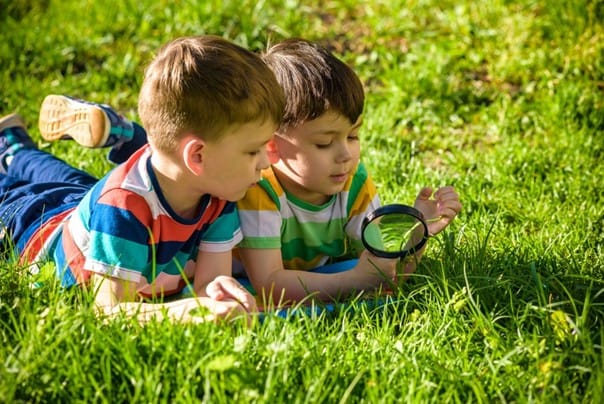In Nature We Feel, Therefore We Learn
Stepping beyond our comfort zone and into the wilderness offers us a powerful pathway for personal growth. Emotional awakening in the wilderness fosters our self-reflection, deep learning, and transformation that extends into both our professional and personal lives. Neuroscientific research underscores the essential role of feelings in learning, decision-making, and creative problem-solving, affirming that "we feel, therefore we learn."
While traditional education and leadership training emphasise cognitive and skill-based approaches, mounting evidence suggests that integrating emotional experiences, particularly in immersive environments such as the wilderness, can significantly enhance our personal growth and transformation.
Wilderness as a Catalyst for Emotional Growth
Immersion in wilderness inherently exposes us to heightened emotional experiences. When we step away from our structured environments and enter the unpredictable terrain of nature, we encounter emotions in their rawest forms-fear, awe, vulnerability, and interconnectedness. These emotions serve as catalysts for deep reflection, shifting our attention inward and fostering heightened self-awareness. As Van Droffelaar (2022) highlights, emotional experiences in wilderness settings often lead to peak moments that fundamentally alter our perception of ourselves, others, and the world around us.
Participants in nature-based leadership development programmes, such as from the Foundation for Natural Leadership, frequently describe moments of intense emotional clarity in the wilderness. These peak experiences-defined by Abraham Maslow (1968) as highly emotional and cognitively transformative moments-often result in profound self-discovery. As one participant recounted, "I feel cleansed, reborn, quiet, and incredibly strong." Another described the importance of attentiveness: "Really giving attention to the person, the thought, what it brings forward in all its senses, like in nature." (Van Droffelaar & Jacobs, 2017). These statements illustrate how the wilderness experience fosters our emotional awakening and, consequently, deeper learning.
The Neuroscience of Emotion and Learning
The connection between emotion and learning is well-documented in affective and social neuroscience. According to Immordino-Yang and Damasio (2007), cognition and emotion are inseparably linked-without emotion, learning is significantly impaired. Their research underscores that complex thinking, memory retention, and decision-making are profoundly influenced by emotional engagement. In essence, we only deeply engage with and retain information that we emotionally care about.
The power of emotional experiences extends beyond their immediate occurrence. The process of reflection-when we revisit these feelings with intentionality-drives lasting transformation. Reflection encourages us to analyse our emotional responses, identify personal growth areas, and apply these insights to real-world personal challenges.
Feelings fuel creativity and innovation. Immordino-Yang and Damasio (2007) suggest that emotional experiences form the basis for abstract thinking and problem-solving. When we engage deeply with our emotions, we are better equipped to generate creative solutions, as we can connect personal insights with broader organisational challenges.
Emotional Experiences and Personal Transformation
Studies (Van Droffelaar & Jacobs, 2017, 2018) show that relived emotional experiences have profound intra- and interpersonal implications. For instance, those of us who recall moments of solitude, awe, or deep connection with nature often experience enhanced interpersonal skills, including empathy, deep listening, and authentic engagement with others. One participant from a wilderness leadership programme reflected on a moment of connection with nature: "An overwhelming sunrise during night watch and a rhino just ten metres away, all in harmony." Such experiences deepen our emotional intelligence, fostering qualities that translate directly into improved leadership capabilities.
Integrating Emotional Experiences in Educational and Leadership Development
Despite the compelling evidence supporting the role of feelings, many traditional educational and leadership programmes continue to emphasise cognitive learning while neglecting affective engagement. A shift toward integrating emotion-driven learning into educational and leadership programmes is necessary to foster authentic, personal transformation.
- Experiential Learning Approaches - From the early stages of education, we should incorporate immersive experiences, such as nature-based retreats or structured emotional storytelling exercises, to create meaningful emotional engagement. These approaches enable us to experience vulnerability, cultivate resilience, and develop authentic, personal growth.
- Reflection and Emotional Processing - Encouraging us to reflect on our emotional experiences fosters self-awareness and enhances our ability to translate emotions into actionable personal insights. Educational programmes should include structured reflection exercises, such as journaling or guided discussions.
- Creating Emotionally Engaged Learning Environments - Educational institutions and organisations should foster cultures that encourage emotional transparency and self-expression among students, teachers, and co-workers. Encouraging individuals to share their emotional insights can strengthen team cohesion and workplace trust.
Integrating emotional experiences into educational and leadership development programs offers an innovative approach to cultivating more authentic and emotionally intelligent students, teachers, co-workers, and leaders. By embracing the power of feelings, organizations can redefine education and development-ensuring that we not only think effectively but also feel deeply, connect authentically, and inspire meaningfully.
Nature, especially pristine wilderness, serves as a profound teacher, reminding us that true transformation begins where comfort ends.
Boy Van Droffelaar, PhD



